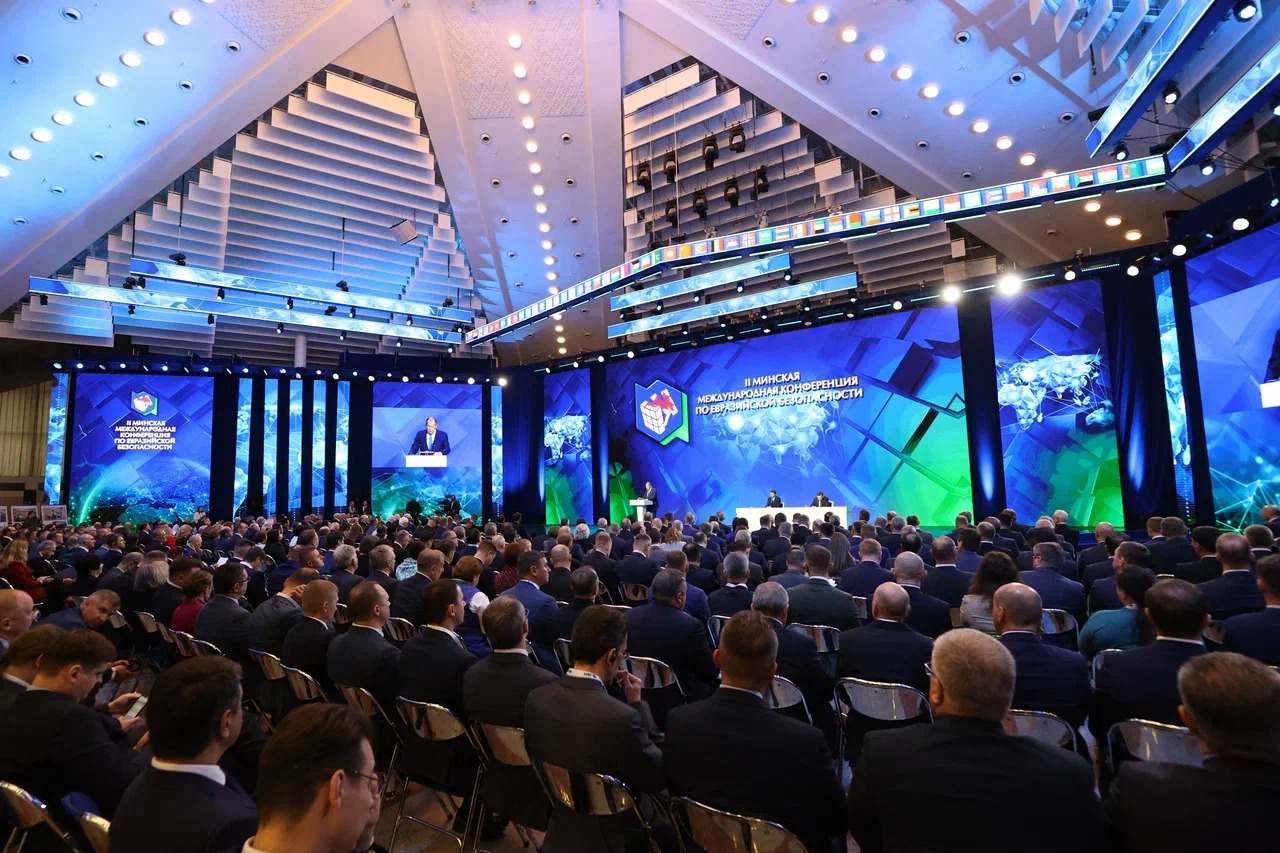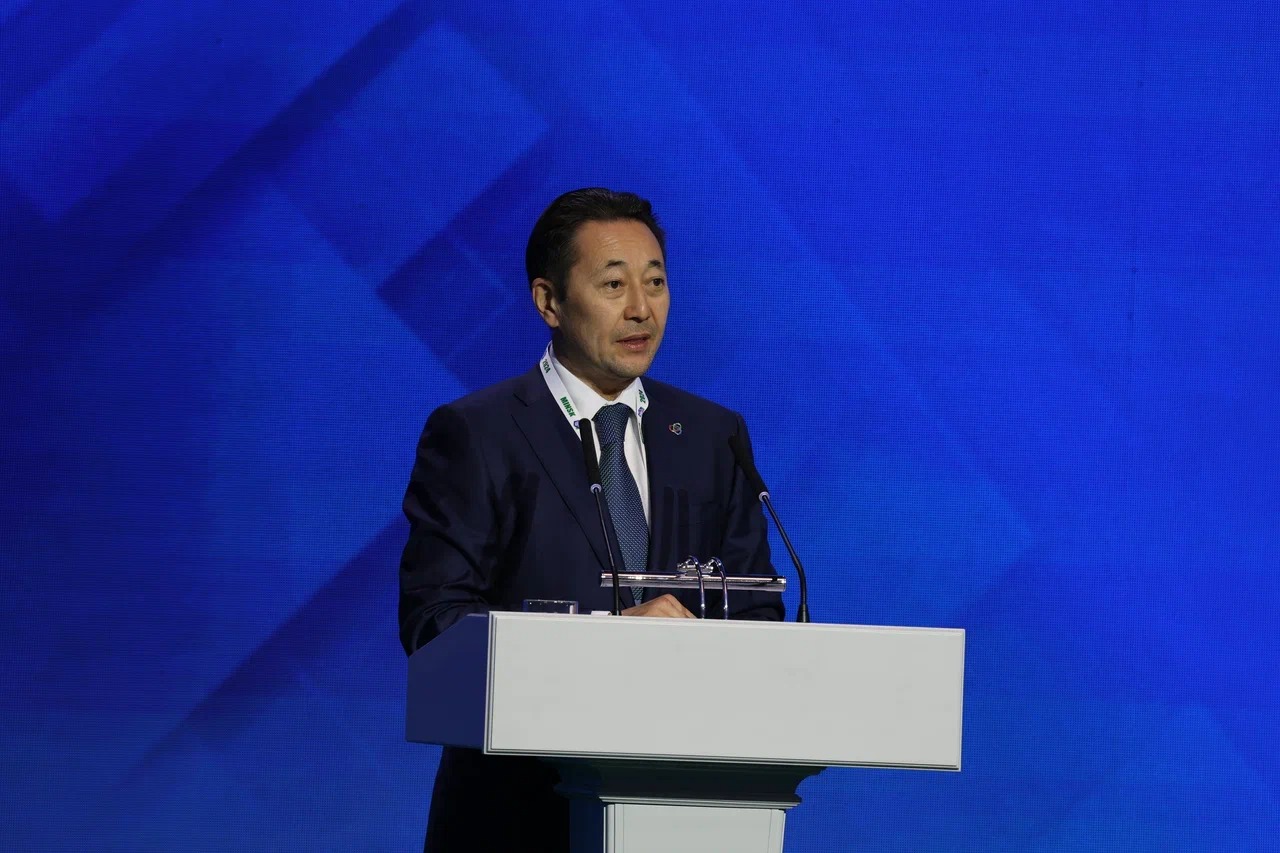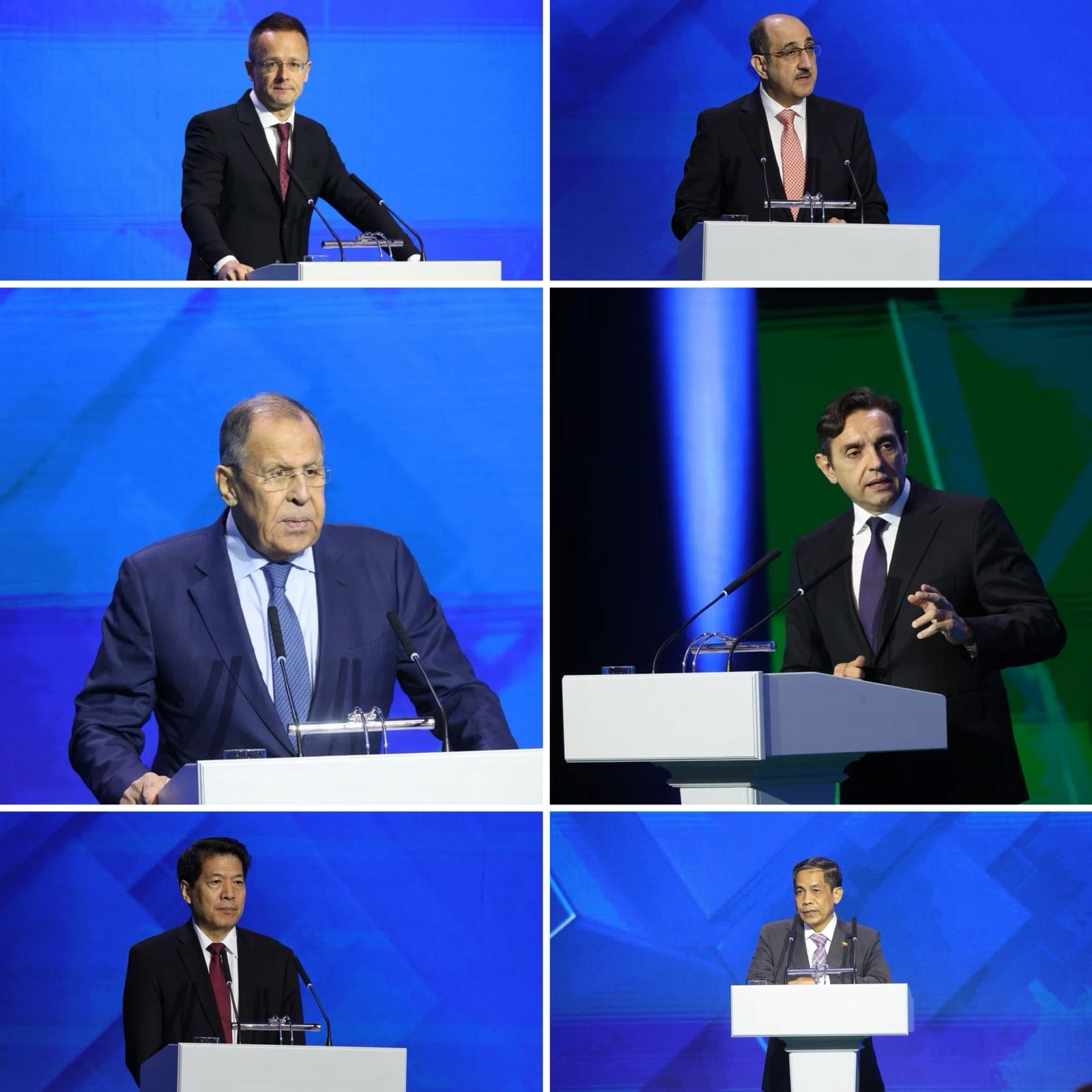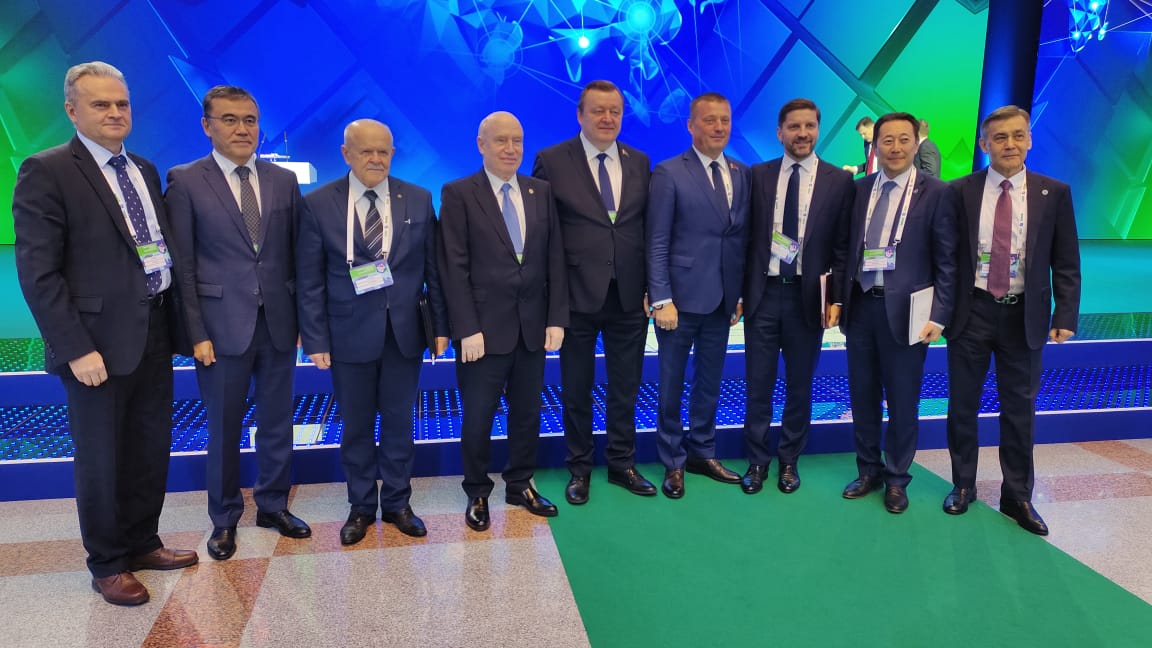
31 October – 1 November 2024, Minsk – Secretary General of the Conference on Interaction and Confidence Building Measures in Asia (CICA) Ambassador Kairat Sarybay took part in the Second Minsk International Conference on Eurasian Security in Minsk.
Speaking at the high-level session “Paradigm shift in the world order: from monocentrism to multipolarity”, CICA Secretary General Kairat Sarybay outlined the importance of the organization in establishing a new Eurasian security architecture. He emphasized that “the future of Eurasia lies precisely with such associations as CICA, which serve to erase dividing lines and create new areas of interaction”.

Ambassador Kairat Sarybay noted that building a comprehensive security architecture and transitioning from competition to cooperation can only be achieved through genuine multilateralism and confidence building measures. He welcomed the fact that the global community is becoming more aware of the need for a sustainable approach that includes economic and social development, addresses humanitarian issues and takes civilizational and cultural aspects into account to ensure security. K. Sarybay also stressed the importance of CICA initiatives, including the Ministerial Conference on Environmental Issues, where the Member States reaffirmed their commitment to work together on climate change, as well as youth and educational programmes such as the Rally of Volunteer Leaders and the Partnership Network of Leading Universities aimed at building trust among the Member States.
The event was opened by President of the Republic of Belarus Alexander Lukashenko. The plenary session was attended by Deputy Prime Minister of Serbia Aleksandar Vulin, Foreign Ministers of Russia Sergey Lavrov, Hungary Péter Szijjártó, Syria Bassam al-Sabbagh, Special Representative of the Government of the People's Republic of China Li Hui, Union Minister of Myanmar U Ko Ko Hlaing, heads of international organizations – CICA, CSTO, CIS, SCO and its Regional Anti-Terrorist Structure, as well as the Union State of Russia and Belarus.

The conference participants, including leading international experts, discussed topics such as regional and global security challenges, economic and energy security, interaction among international and regional structures, principles of the future architecture of Euro-Asian security based on multipolarity and diversity.
